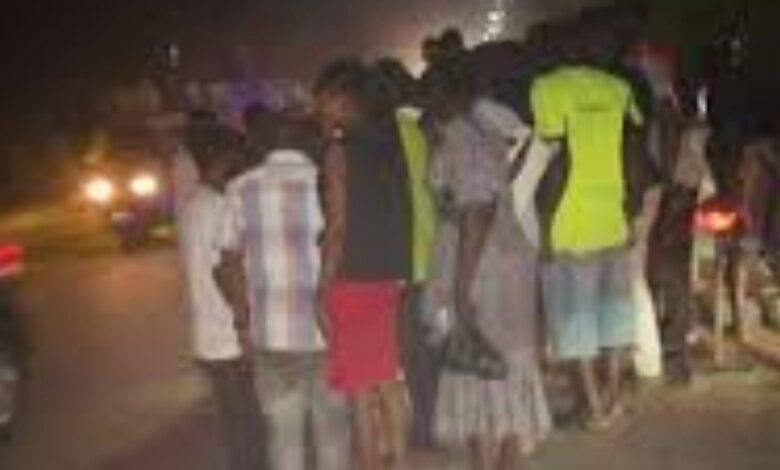Nigerian Drivers: Embracing Responsibility for Safer Roads and a First-World Nigeria

The recent heart-wrenching loss of my friend’s mother in a hit-and-run accident highlights a critical issue in Nigeria: the failure of drivers to take responsibility on the roads.
“If only he had taken responsibility and stopped to take my mum to the nearest hospital, she may have survived the carnage,” my friend lamented.
This tragedy reflects a broader problem of disregard for traffic laws and a lack of accountability in assisting accident victims.
For Nigeria to progress toward first-world status, drivers must embrace their civic duty to obey traffic regulations and prioritize human lives by ensuring accident victims receive timely medical care.
Hit-and-run incidents, like the one that claimed my friend’s mother, are alarmingly common in Nigeria.
According to the Federal Road Safety Corps (FRSC), Nigeria records over 40,000 deaths annually from road traffic crashes, with hit-and-run cases contributing significantly.
A 2017 study in the Annals of Medical and Health Sciences Research notes that road traffic accidents are the third-leading cause of death in Nigeria, the primary cause of trauma-related deaths, and the leading cause of disability, with a staggering 1,042 deaths per 100,000 vehicles; one of the highest rates globally.
Many of these deaths are preventable, as timely medical intervention could save lives.
Yet, drivers often flee accident scenes, fearing mob justice, financial liability, or police custody.
The systemic failure of pre-hospital care exacerbates this issue. Only 40.4% of road traffic victims are transported to hospitals by police or FRSC, and none receive critical airway protection or circulatory support en route.
This shows the urgent need for drivers to take responsibility by stopping to assist victims and ensuring they reach medical facilities promptly. The fear of repercussions must not outweigh the moral obligation to save a life.
The impatience to ignore a 60-second red light or flout other traffic regulations contributes to Nigeria’s high accident rate. The ProQuest analysis of road traffic crashes identifies non-compliance with traffic laws as a major cause, alongside poor road maintenance and weak enforcement.
Speeding, drunk driving, and running red lights are rampant, reflecting a lack of discipline among drivers. Nigeria’s road traffic accident rate is among the highest globally, with socioeconomic consequences including loss of life, property damage, and increased disability.
Effective enforcement is critical, but so is a cultural shift among drivers. The FRSC’s efforts to publicize traffic laws are insufficient without consistent penalties for violations. Drivers must internalize the importance of obeying traffic signals, not just to avoid fines but to protect lives.
Simple acts, like waiting at a red light or adhering to speed limits, can prevent accidents and reduce the need for emergency interventions.
To achieve a first-world Nigeria, drivers must embrace accountability on the roads. This requires a value reorientation focused on two key areas:
Drivers must respect traffic laws as a civic duty. Public awareness campaigns can highlight the consequences of violations, using real-life stories like my friend’s to drive home the human cost.
Consistent enforcement, such as breathalyzers for drunk driving and roadside checks for speeding, is essential to deter non-compliance. Drivers should view adherence to traffic rules as a contribution to national progress, not an inconvenience.
Drivers involved in accidents must prioritize human life by stopping to help. Legal protections for good Samaritans can alleviate fears of mob justice or financial liability.
The government must strengthen emergency response systems, ensuring hospitals are equipped to handle trauma cases.
Public education campaigns can emphasize the moral and legal obligation to transport victims to hospitals, reinforcing that saving a life outweighs personal risk.
The tragedy of my friend’s mother decries the urgent need for Nigerian drivers to take responsibility on the roads.
With over 40,000 annual road deaths and a high incidence of hit-and-run cases, the stakes are clear. By obeying traffic laws and ensuring accident victims receive timely medical care, drivers can reduce preventable deaths and build a safer Nigeria.
A first-world Nigeria demands disciplined, empathetic drivers who prioritize human lives over fear or convenience.
Through collective accountability, we can ensure tragedies like hit-and-run accidents become a thing of the past, paving the way for a nation where every citizen takes responsibility for a brighter future.
My condolences to Philip’s family. I pray the perpetrator is caught and brought to face the full wrath of the law.





